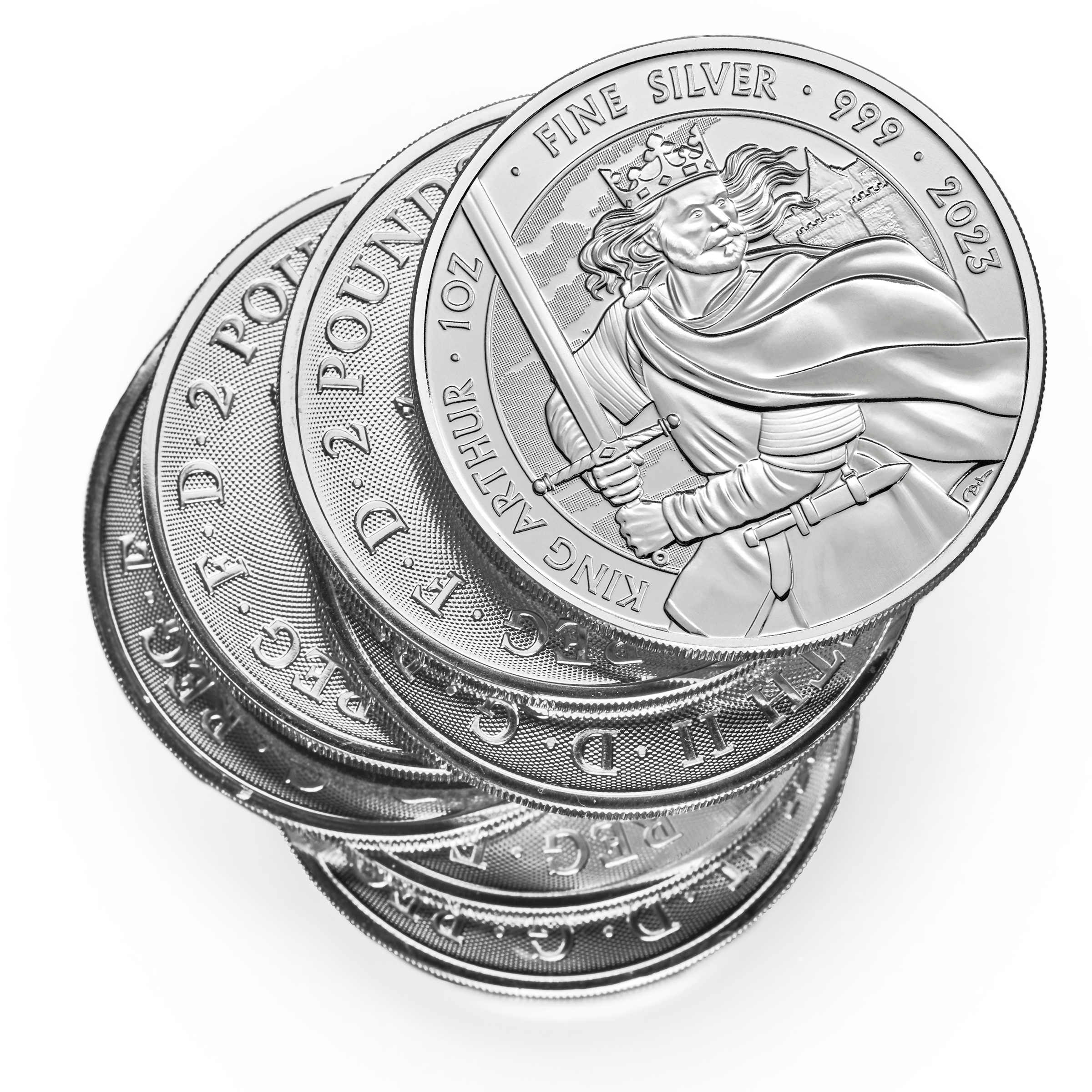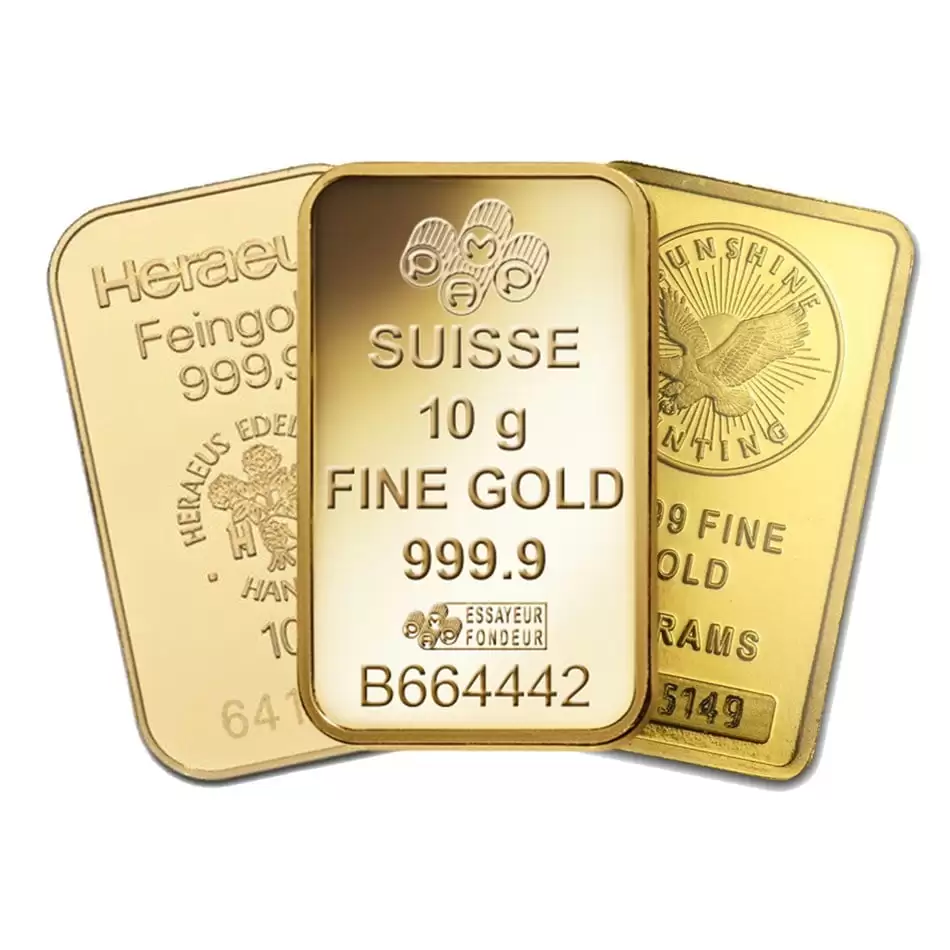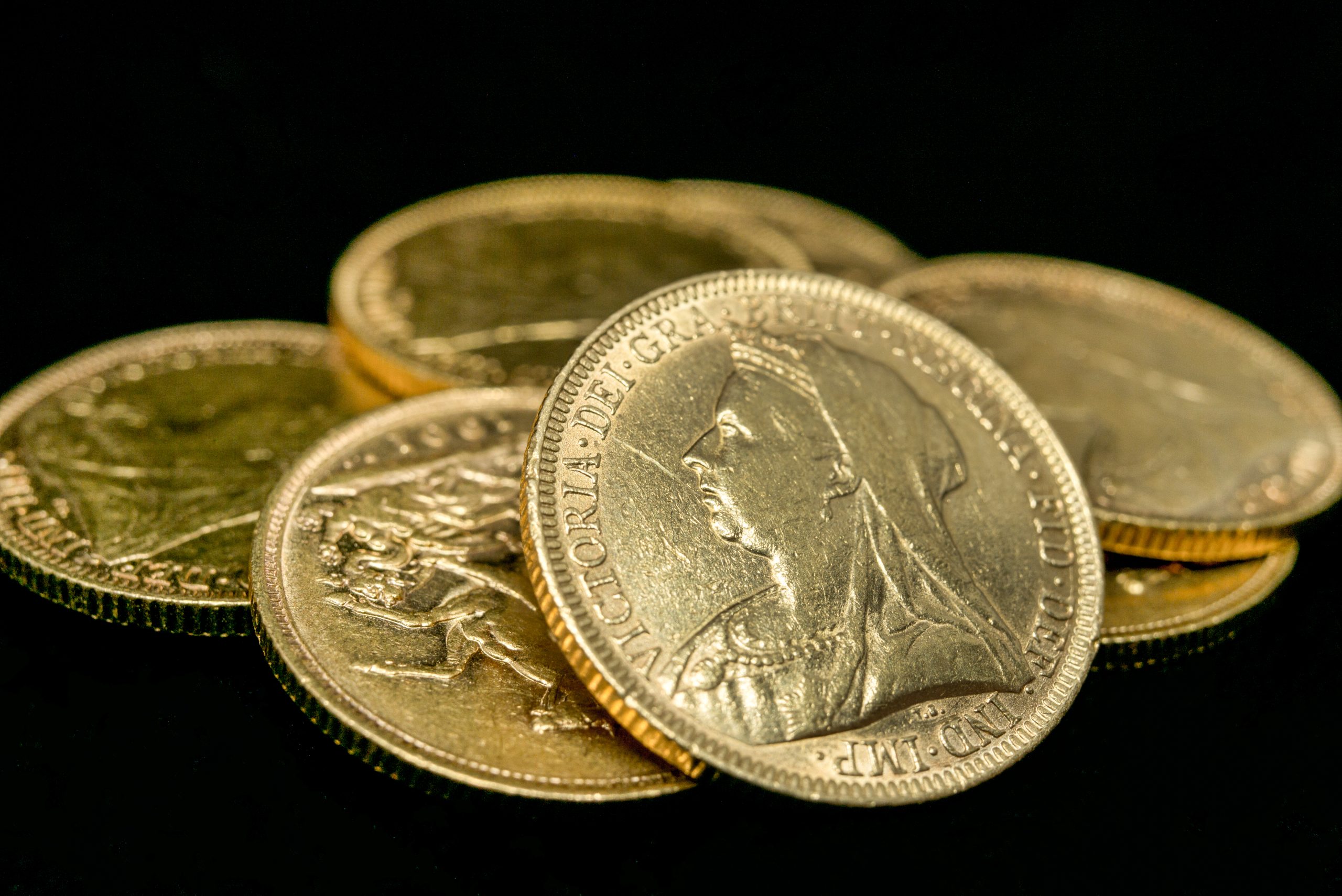Tax Implications Of Gold And Silver For Investors
21/09/2023Daniel Fisher
Free & fully insured UK Delivery. Learn more
Secure & flexible payments. Learn more

Buyback Guarantee Learn more
As an investor based in the UK, being aware of the tax implications of your investment decisions is essential. When it comes to precious metals like silver and gold, the rules can be particularly complex, with differing rates of Value Added Tax (VAT) and Capital Gains Tax (CGT) applied. It pays to understand the most tax-efficient ways to invest in these assets.
This comprehensive guide aims to explore all the key tax considerations around investing in silver and gold.
We’ll outline everything you as an individual investor need to know, from VAT exemptions and Inheritance Tax (IHT), to CGT allowances and tax-free coins.
Our goal is to help you make informed decisions that support your investment strategy and allow you to maximise returns under current UK tax laws. With the right approach, it is possible to eliminate certain taxes on silver and gold entirely.

Capital Gains Tax (CGT) is a tax levied on individuals and corporations when they sell/dispose of an asset and make a profit (a capital gain). For you and I, that means a tax on any profit you make from selling a chargeable asset such as shares or a second home. The tax only applies once the particular asset is sold and a profit has been made rather than when the asset is still held.
The tax is calculated annually on an individual’s net gains. So, for instance, if you sell 2 different shares during the year and one makes a loss while the other profits, your annual capital gain will be the net profit of the two.
The current rate of Capital Gains paid varies between 18% and 28%, depending on whether you’re a lower or higher-rate taxpayer. But don’t be surprised if the UK Government decides to increase the tax as high as 40-45% in the near future in an attempt to raise taxes stealthily.
Just like any other capital asset, selling gold or silver at a profit can incur CGT. However, we just hate the idea of our customers having to share any profits from gold or silver if they don’t have to.
Two of the most popular ways of avoiding CGT are by buying UK tax-free coins and Pension Gold.
Coins produced by the Royal Mint, which qualify as legal tender, are not subject to CGT as the Treasury cannot tax the movement of legal currency. This covers Gold Sovereigns, Gold Britannias, Silver Britannias and some other limited-issue Royal Mint coins. There is no upper limit either, which is why so many customers focus on these coins as a tax-free store of wealth.
Under the Taxation of Chargeable Gains Act 1992 (section TCGA92/S21 (1) (b)), Sovereigns dated after 1837 and Britannias are exempt from CGT due to their legal tender status. Older Sovereigns dated pre-1837 qualify for exemption under a separate rule of being a chattel (personal possession). Many other Royal Mint coins with a face value, such as Queen’s Beasts, Tudor Beasts and Myths and Legends coins, to name just a few, also qualify as they meet the same technical specifications as the Britannia.
Our Pension Gold product has also proved to be a popular way of benefiting from rising gold prices without paying tax. Any profits from gold bullion held within your Self Invested Personal Pension (SIPP) are sheltered from CGT.
If all this sounds complicated, don’t worry; we specialise in guiding you to the most tax-efficient gold and silver. Just call us on 020 7060 9992, and a member of our team can suggest coins that qualify as CGT-free.
If you’re currently in a high tax bracket, you might pay less CGT on gold and silver as they are only taxed for capital gains tax purposes at the marginal rate of 28%. Even if an investor is in the 33%, 35% and 39.6% tax brackets, the marginal rate of 28% only will apply.
Certain bullion coins are also exempt from CGT tax altogether in the UK. All coins produced by the Royal Mint and classed as British legal currency are exempt from Capital Gains Tax. This includes all silver Britannia coins and post-1837 sovereign coins. You can, therefore, make an unlimited tax-free profit on any of these coins.
As a UK investor, selling gold bars or non-UK gold coins at a profit could incur CGT if you make more than your allowance. But sticking to UK legal tender gold coins will mean any profits are completely free from CGT.
That’s because HMRC cannot tax individuals for gains made from selling its own legal currency. Coins issued by the Royal Mint with a face value qualify as legal tender.
The two main choices are Gold Britannias and Gold Sovereigns. But The Royal Mint also produces more limited-issue legal tender series such as Lunar coins and Queens Beasts.
One of the world’s best-known gold coins, the humble Sovereign also qualifies as tax-free.
At around a quarter of the size of the Britannia, the Sovereign offers a more affordable route to gold for modest investors or more divisibility for those seeking flexible portfolios.
The modern Sovereign has existed for more than 200 years, so it offers a huge variety for investors and collectors alike.
Best-value Sovereigns offer the cheapest option, while historical editions from the Victorian era are more scarce but expensive.
Their relative affordability makes Sovereigns and their smaller Half Sovereign version, an ideal choice for investors seeking to buy tax-free coins on a regular basis.
One of the most popular limited-issue Royal Mint series are the Queen's Beasts and Tudor Beasts range of coins.
These are primarily 1oz 24-carat coins, although quarter-ounce coins are also available. Limited to a series of 10, the coins’ stunning design is a major pull, but their limited issue quantity has also led to many of them increasing in value at a far quicker pace than other UK coins.
The Bull of Clarence is the most recent and issuance in the set. It currently trades at modest premiums, so could be a good bet if its value follows earlier coins upwards.
With the same £100 face value as Britannias, these coins also provide a tax-free shelter.
These are the Royal Mint’s highest mass-produced face value coin and weigh 1oz in weight. Gold purity is 999.9 / 1,000 parts gold, and the most popular UK tax-free coin for larger investors due to its low premiums. Recent versions boast high-tech laser-produced security features, making it one of the most impressive bullion coins on the market.
Pre-owned Britannias are occasionally available and offer investors the chance to reduce premiums further. Britannias are also CGT-free due to their legal tender status if bought in their fractional versions (half, quarter and tenth) or the silver version.
Occasional design updates of the famous Britannia reverse design add a collector's interest to these coins also.
Value Added Tax (VAT) is added to most consumer goods and services in the UK. The current general rate of VAT is 20%, with some items being at a reduced or zero rate. This is added at the point of sale, and the consumer will bear the charge.
Many foods and drinks are zero-rated except alcohol, confectionery and hot food. Most cultural and leisure activities are exempt, as are some health, education and charity goods and services.

If you buy any form of silver for delivery in the UK, your purchase is subject to 20% VAT, regardless of purity and whether it’s a coin or bar. Despite this cost, physical silver investment in the UK has continued to grow in popularity, as analysts believe the silver price is severely undervalued.
There still remains a technical loophole whereby carefully structured silver purchases can avoid incurring a VAT charge if kept offshore within a bonded warehouse. While VAT is always charged for UK delivery or regular UK storage, it is possible to buy VAT-Free if delivery isn’t required.
We’re currently working on offering this as a solution with products limited to silver kilo bars and silver Britannias which will be stored in Zurich. Watch this space!
This may appeal to some silver investors who seek best value, but would not be appropriate for the many who desire physical possession of their silver coins.
We offer a range of bullion coins from 1oz Britannias and 2oz Queen’s Beasts coins to the most popular foreign silver coins. If you’re buying a large number of silver coins (such as silver Britannias) or looking to build a substantial holding over time, then don’t forget that any UK silver coins are also Capital Gains Tax-free to UK residents.
We are able to deliver pure silver bars to UK addresses. You can benefit from the lower premiums of the larger silver bars and buy silver bars delivered directly to your door.

This depends on what type of gold you buy. Since the 1st January 2000, the VAT Act 1994 exempts Investment Grade Gold from Value Added Tax. So, as long as your purchased gold qualifies as an Investment Grade, then no VAT will be charged.
There are a few requirements for gold to qualify for an exemption:
Firstly, it has to be in the form of a coin or a bar. For this reason, VAT is still added to gold jewellery. You should also avoid gold dust, gold ore and gold watches if you want to be tax-efficient.
Inheritance Tax, also known as estate tax or death duty, is charged on the transfer of someone’s assets upon their death. It’s arguably the most unpopular tax as people believe they’ve already been taxed their entire life and now they’re taxed on their death. This tax is deducted from an individual’s estate value before being distributed to the beneficiaries. Taxable assets will include property, cash, investments and even the value of some gifts previously made.
The current IHT rules provide a framework to calculate the potential tax burden to loved ones, including a tax-free threshold, varying tax rate bands and certain exemptions.
The key parameters are as follows;
The first £325,000 value of assets is not taxable (known as the Nil Rate Band). Any unused amount of a nil-rate band can be passed onto a surviving spouse/partner to effectively increase the tax-free threshold of the surviving partner. Additionally, leaving a main residence to direct descendants will qualify for a Residence Nil Rate Band, essentially passing on the value of their home without any tax.
As of November 2023, the standard Inheritance Tax rate on the portion of an estate above the nil-rate band is 40%. This can be reduced to 36% if at least 10% of the value is left to charity.
Assets which are gifted to beneficiaries at least seven years before death will generally avoid incurring IHT. If the provider of the gift passes away within 7 years of gifting, then tax will be charged on a tapered basis. These gifts are known as Potentially Exempt Transfers (PETs). Certain gifting is exempt to the 7-year rule, such as gifting to a civil partner, charities and small gifts for birthdays and weddings. An individual also has an annual gifting allowance, currently £3,000, which falls outside of the 7-year requirement.
The value of a person’s pension fund is tested against the lifetime allowance (Just over £1m for 2023/24). If the pension value exceeds the allowance, a tax charge will apply.

Gold coins and bars are not explicitly exempt from Inheritance Tax. In theory, gold & silver are both liable for IHT and subject to the same rules as other assets.
Clearly, no Inheritance Tax will be applied to gold being inherited if the total assets of the deceased falls below the Nil-Rate band of £325,000. The value of the gold is calculated on the market value at the date of death.
We’ve already established that investing in gold in particular can be very tax-efficient. Focussing on UK gold coins like Sovereigns or Britannias will mean that no VAT is paid upon purchase and no CGT is paid on profits upon sale, even if they’re eventually sold by spouses, children or grandchildren.
Here are some additional ideas to pass your gold onto loved ones and try to circumvent Inheritance Tax too;
Personal possessions can qualify as exempt if they’re classified as a ‘household and personal nature’. This would include jewellery, artwork and antiques. Tax advice is recommended to determine whether a gold coin collection, consisting of old Queen Victoria Sovereigns would constitute a gold collection through the antique route.
Exploiting every exemption can allow an individual to pass on gold without incurring Inheritance Tax. Passing to a spouse will be tax free. Alternatively, combing the 7-year rule with regular annual and special occasion gifting can soon remove the value of gold from the IHT net.
If you opt for a gold bar (such as 100g, 1oz or 1 kilo), the purity needs to be at least 995 thousandths. The good news is that a majority of gold bars on the market exceed this, at 999 thousandths gold, with the rest generally meeting the minimum requirement.
For gold coins, the purity target is lowered to 900 thousandths, meaning that any coin of 22 carats or higher will qualify. There are a few extra guidelines for coins – they must be minted after 1800, have been legal tender in their country of origin and not usually sell at more than 180% of the market value of their gold content. Essentially, these additional rules exclude very old, obscure numismatic coins.
If all this sounds complicated, don’t worry. We only sell gold coins and bars that meet these requirements and qualify as Investment Grade, so you’ll never pay Value Added Tax whenbuying gold through Physical Gold.
If you want your gold investment to be completely tax-efficient, then buying UK gold coins also benefits from being Capital Gains Tax-free. They already meet the VAT-exempt criteria but are also tax-free upon sale due to their legal tender status. With each Sovereign, Britannia, special edition UK coins and variants of these, each coin possesses an actual face value. The Government can’t tax you on the movement of legal currency, so buying and selling UK gold coins is completely tax-free!
Use our automated portfolio builder to get suggestions based on various investment objectives, including tax efficiency.
With often conflicting tax rates applied to silver versus gold, having a comprehensive understanding of UK tax rules is essential for any investor in precious metals. Focusing your purchases on VAT-exempt gold and CGT-free British legal tender coins can potentially eliminate certain taxes completely. However, always seek professional tax advice tailored to your specific investment portfolio and personal financial situation before making purchase decisions.
It seems unlikely in the near future. The 20% VAT rate has been in place for over 20 years now. However, now that the UK has left the EU, it could choose to remove VAT from silver as it sets its own tax policies. This would require lobbying and political will.
Yes, British gold coins eligible as legal tender are exempt from Capital Gains Tax when sold. This includes coins like Sovereigns and Britannias. Other gold coins and bars don’t qualify, and CGT would apply if gains exceed allowances.
The UK policy has aligned with EU rules, making gold coins and bars VAT-exempt if they meet certain criteria. Now that Britain has left the EU, it is not obliged to follow these rules but has so far maintained the VAT exemption for gold meeting the investment grade criteria.
Live Gold Spot Price in Sterling. Gold is one of the densest of all metals. It is a good conductor of heat and electricity. It is also soft and the most malleable and ductile of the elements; an ounce (31.1 grams; gold is weighed in troy ounces) can be beaten out to 187 square feet (about 17 square metres) in extremely thin sheets called gold leaf.
Live Silver Spot Price in Sterling. Silver (Ag), chemical element, a white lustrous metal valued for its decorative beauty and electrical conductivity. Silver is located in Group 11 (Ib) and Period 5 of the periodic table, between copper (Period 4) and gold (Period 6), and its physical and chemical properties are intermediate between those two metals.